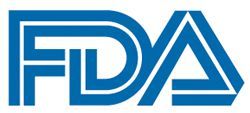News
Article
FDA Grants Priority Review to Isatuximab Combo for Newly Diagnosed, Transplant-Ineligible Myeloma
Author(s):
The FDA granted priority review to the sBLA for isatuximab plus bortezomib/lenalidomide/dexamethasone for newly diagnosed, transplant-ineligible myeloma.
FDA

The FDA has granted priority review to the supplemental biologics license application (sBLA) seeking the approval of isatuximab-irfc (Sarclisa) in combination with bortezomib (Velcade), lenalidomide (Revlimid), and dexamethasone (VRd) for the treatment of patients with newly diagnosed, transplant-ineligible multiple myeloma.1
A regulatory submission seeking the approval of the combination is also under review in the European Union (EU), according to a news release from Sanofi.
The sBLA is supported by data from the phase 3 IMROZ trial (NCT03319667), which showed that the addition of isatuximab to VRd significantly reduced the risk of progression or death compared with VRd alone.2 In June, findings from IMROZ will be presented during an oral session at the 2024 ASCO Annual Meeting and during a plenary scientific session at the 2024 EHA Congress.1
The FDA’s target action date under the Prescription Drug User Fee Act is September 27, 2024. If approved, isatuximab would mark the first anti-CD38 monoclonal antibody indicated in combination with standard-of-care VRd for the frontline treatment of patients with newly diagnosed multiple myeloma who are not eligible for transplant, according to Sanofi.
“Despite recent advancements in multiple myeloma treatment, there remains a significant unmet need for new frontline therapies, particularly for transplant-ineligible patients who can face poor outcomes from the disease,” Dietmar Berger, MD, PhD, chief medical officer and global head of development at Sanofi, stated in a news release. “The [FDA and EU] filing acceptances, as well as the FDA’s priority review designation, reinforce our confidence in [isatuximab] as a potential best-in-class treatment and represent a critical step toward advancing this combination in a difficult-to-treat cancer.”
IMROZ was a global, multicenter, randomized, open-label study that enrolled 446 patients with newly diagnosed, transplant-ineligible multiple myeloma.1 Patients were considered ineligible for transplant if they were at least 65 years of age or less than 65 years of age with comorbidities affecting the opportunity for transplant. Patients also needed to have evidence of measurable disease.3
The trial excluded patients under 18 years of age; those who received any prior treatment for multiple myeloma; patients with inadequate organ function; and those with an ECOG performance status higher than 2.
Patients were randomly assigned to receive isatuximab plus VRd or VRd alone. In the experimental arm, patients received induction therapy consisting of 10 mg/kg of isatuximab once weekly for 5 weeks during the first 42-day cycle, then once every 2 weeks during cycles 2 to 4, in combination with RVd. Isatuximab was then continued once every 2 weeks for cycles 5 to 17 and once every 4 weeks in cycle 18 and beyond, in combination with lenalidomide and dexamethasone until disease progression, unacceptable toxicity, or patient decision to end treatment. In the control arm, VRd was given as induction therapy during 4, 6-week cycles, before lenalidomide plus dexamethasone was administered continuously in cycle 5 and beyond.1,3
Progression-free survival (PFS) served as the trial’s primary end point. Secondary end points consisted of complete response (CR) rate; minimal residual disease (MRD) negativity rate for patients who achieved a CR; very good partial response better rate; overall survival; overall response rate; time to first response; time to best response; PFS on next line of therapy; PFS in patients who were MRD negative; rate of sustained MRD negativity for at least 12 months; and safety.3
Regarding safety, findings for isatuximab plus VRd were consistent with the established safety profiles of the agents.1
References
- Sarclisa accepted for FDA priority review for the treatment of transplant-ineligible newly diagnosed multiple myeloma. News release. Sanofi. May 27, 2024. Accessed May 27, 2024. https://www.sanofi.com/en/media-room/press-releases/2024/2024-05-27-05-00-00-2888291
- Sarclisa (isatuximab) phase 3 trial met primary endpoint of progression free survival in patients with newly diagnosed multiple myeloma not eligible for transplant. News release. Sanofi. December 7, 2023. Accessed May 27, 2024. https://www.sanofi.com/en/media-room/press-releases/2023/2023-12-07-06-35-00-2792221
- Clinical benefit of SAR650984, bortezomib, lenalidomide and dexamethasone combination in NDMM patients not eligible for transplant (IMROZ). ClinicalTrials.gov. Updated April 8, 2024. Accessed May 27, 2024. https://clinicaltrials.gov/study/NCT03319667








